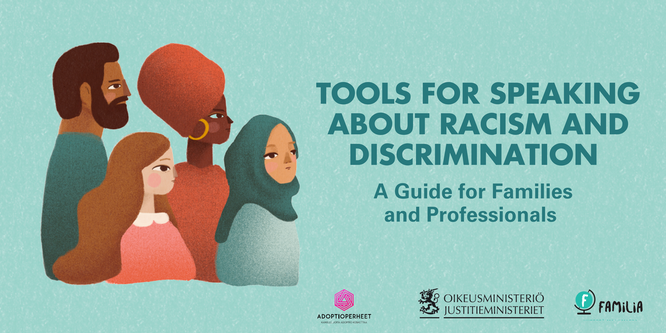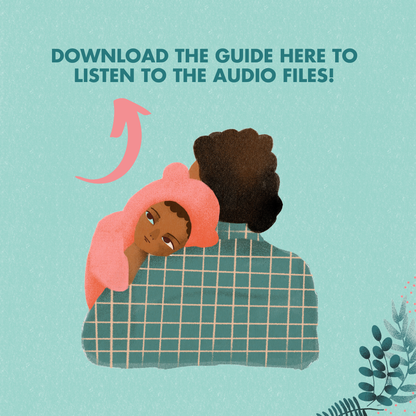During the summer of 2020, we conducted a survey on the topic of "Racism and discrimination as experienced by couples and families of two cultures in Finland". We received answers from 147 people across Finland. Thirty percent of the intercultural families who replied to the survey had experienced racism aimed at their family monthly, and fifteen percent experienced the same daily. You can read the report of the study here (in Finnish).
The survey raised the issue that, intercultural families and the professionals working with them need more information and means to intervene in situations of racism and discrimination. It also highlighted the need for more information and means on how to talk about racism and discrimination with children, as well as different opportunities to discuss these issues with peers.
The Tools for Speaking about Racism and Discrimination – A Guide for Families and Professionals, published in December 2021, is meant for intercultural families, adoptive families, and professionals working with them. It will introduce subjects such as: anti-racist upbringing, initiating discussions about racism, child identity formation, the importance of emotional skills when dealing with racism as well as how and where to report incidents of racism and discrimination. In addition to the guide, we have developed a workshop model for processing and discussing experiences of racism and discrimination.
We would like to thank the Ministry of Justice, for the support we have received in creating this guide and the workshop model.
The survey raised the issue that, intercultural families and the professionals working with them need more information and means to intervene in situations of racism and discrimination. It also highlighted the need for more information and means on how to talk about racism and discrimination with children, as well as different opportunities to discuss these issues with peers.
The Tools for Speaking about Racism and Discrimination – A Guide for Families and Professionals, published in December 2021, is meant for intercultural families, adoptive families, and professionals working with them. It will introduce subjects such as: anti-racist upbringing, initiating discussions about racism, child identity formation, the importance of emotional skills when dealing with racism as well as how and where to report incidents of racism and discrimination. In addition to the guide, we have developed a workshop model for processing and discussing experiences of racism and discrimination.
We would like to thank the Ministry of Justice, for the support we have received in creating this guide and the workshop model.




